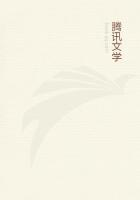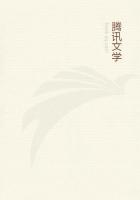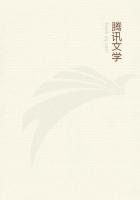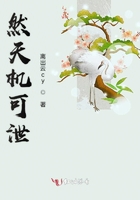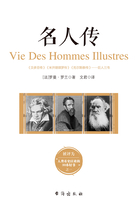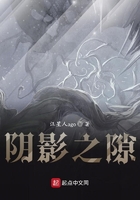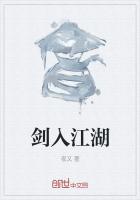"Philip" is not worthy of the author of "Esmond," nor "Daniel Deronda" of the author of "Silas Marner." At that time--the time of the Dorrits and Dombeys--Blackwood's Magazine published a "Remonstrance with Boz"; nor was it quite superfluous. But Dickens had abundance of talent still to display--above all in "Great Expectations" and "A Tale of Two Cities." The former is, after "Pickwick," "Copperfield," "Martin Chuzzlewit," and "Nicholas Nickleby"--after the classics, in fact--the most delightful of Dickens's books. The story is embroiled, no doubt. What are we to think of Estelle? Has the minx any purpose? Is she a kind of Ethel Newcome of odd life? It is not easy to say; still, for a story of Dickens's the plot is comparatively clear and intelligible. For a study of a child's life, of the nature Dickens drew best--the river and the marshes--and for plenty of honest explosive fun, there is no later book of Dickens's like "Great Expectations." Miss Havisham, too, in her mouldy bridal splendour, is really impressive; not like Ralph Nickleby and Monk in "Oliver Twist"--a book of which the plot remains to me a mystery. {4} Pip and Pumblechook and Mr. Wopsle and Jo are all immortal, and cause laughter inextinguishable. The rarity of this book, by the way, in its first edition--the usual library three volumes--is rather difficult to explain. One very seldom sees it come into the market, and then it is highly priced.
I have mentioned more than once the obscurity of Dickens's plots.
This difficulty may be accounted for in a very flattering manner.
Where do we lose ourselves? Not in the bare high-road, but among lanes, between hedges hung with roses, blackberries, morning glories, where all about us is so full of pleasure that our attention is distracted and we miss our way. Now, in Dickens--in "Oliver Twist," in "Martin Chuzzlewit," in "Nicholas Nickleby"--there is, as in the lanes, so much to divert and beguile, that we cease to care very much where the road leads--a road so full of happy marvels. The dark, plotting villains--like the tramp who frightened Sir Walter Scott so terribly, as he came from Miss Baillie's at Hampstead--peer out from behind the hedges now and then. But we are too much amused by the light hearts that go all the way, by the Dodger and Crummles and Mrs. Gamp, to care much for what Ralph, and Monk, and Jonas Chuzzlewit are plotting. It may not be that the plot is so confused, but that we are too much diverted to care for the plot, for the incredible machinations of Uriah Heap, to choose another example. Mr. Micawber cleared these up; but it is Mr. Micawber that hinders us from heeding them.
This, at least, is a not unfriendly explanation. Yet I cannot but believe that, though Dickens took great pains with his plots, he was not a great plotter. He was not, any more than Thackeray, a story-teller first and foremost. We can hold in our minds every thread of Mr. Wilkie Collins' web, or of M. Fortune du Boisgobey's, or of M.
Gaboriau's--all great weavers of intrigues. But Dickens goes about darkening his intrigue, giving it an extra knot, an extra twist, hinting here, ominously laughing there, till we get mystified and bored, and give ourselves up to the fun of the humours, indifferent to the destinies of villains and victims. Look at "Edwin Drood." Aconstant war about the plot rages in the magazines. I believe, for one, that Edwin Drood was resuscitated; but it gives me no pleasure.
He was too uninteresting. Dickens's hints, nods, mutterings, forebodings, do not at all impress one like that deepening and darkening of the awful omens in "The Bride of Lammermoor." Here Scott--unconsciously, no doubt--used the very manner of Homer in the Odyssey, and nowhere was his genius more Homeric. That was romance.
The "Tale of Two Cities" is a great test of the faith--that is in Dickensites. Of all his works it is the favourite with the wrong sort! Ladies prefer it. Many people can read it who cannot otherwise read Dickens at all. This in itself proves that it is not a good example of Dickens, that it is not central, that it is an outlying province which he conquered. It is not a favourite of mine. The humour of the humorous characters rings false--for example, the fun of the resurrection-man with the wife who "flops."But Sidney Carton has drawn many tears down cheeks not accustomed to what Mr. B. in "Pamela" calls "pearly fugitives."It sometimes strikes one that certain weaknesses in our great novelists, in Thackeray as well as Dickens, were caused by their method of publication. The green and yellow leaves flourished on the trees for two whole years. Who (except Alexandre the Great)could write so much, and yet all good? Do we not all feel that "David Copperfield" should have been compressed? As to "Pendennis,"Mr. Thackeray's bad health when he wrote it might well cause a certain languor in the later pages. Moreover, he frankly did not care for the story, and bluffly says, in the preface, that he respited Colonel Altamont almost at the foot of the gallows.
Dickens took himself more in earnest, and, having so many pages to fill, conscientiously made Uriah Heap wind and wriggle through them all.
To try to see blots in the sun, and to pick holes in Dickens, seems ungrateful, and is indeed an ungrateful task; to no mortal man have more people owed mirth, pleasure, forgetfulness of care, knowledge of life in strange places. There never was such another as Charles Dickens, nor shall we see his like sooner than the like of Shakespeare. And he owed all to native genius and hard work; he owed almost nothing to literature, and that little we regret. He was influenced by Carlyle, he adopted his method of nicknames, and of hammering with wearisome iteration on some peculiarity--for example, on Carker's teeth, and the patriarch's white hair. By the way, how incredible is all the Carker episode in "Dombey"! Surely Dickens can never have intended Edith, from the first, to behave as she did! People may have influenced him, as they influenced Scott about "St. Ronan's Well." It has been said that, save for Carlyle, Dickens was in letters a self-taught artist, that he was no man's pupil, and borrowed from none. No doubt this makes him less acceptable to the literary class than a man of letters, like Thackeray--than a man in whose treasure chamber of memory all the wealth of the Middle Ages was stored, like Scott. But the native naked genius of Dickens,--his heart, his mirth, his observation, his delightful high spirits, his intrepid loathing of wrong, his chivalrous desire to right it,--these things will make him for ever, we hope and believe, the darling of the English people.

